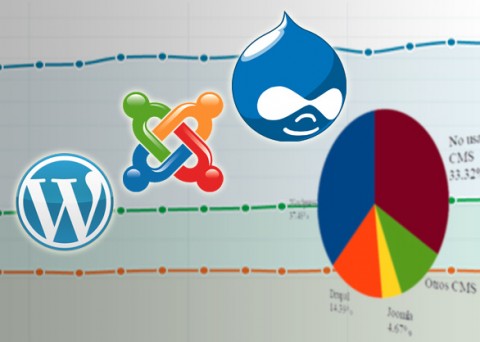Keep in mind that we work with Drupal, but not only that we emphasize that it is the best CMS for any type of website, but as you can see behind this comparison is the most flexible and powerful.
True, the learning curve has Drupal is highest for the highest yield figure, yes ... as in any other aspect of our daily lives we want to go farther and we want to be safer, more time and dedication we have to spend. Therefore, to get the most out of any CMS the more knowledge we have better ... so not only is Drupal.
For Web developers Drupal is perfect, grows and grows as much as you need. For inexperienced users can be challenging, so in dlógica give Drupal based solutions as easy to use as any other but with all the power offered by Drupal.
Comparison content
- What is a web content manager CMS?
- History of each CMS in the comparison
- Main features of each CMS
- Usage statistics, networking popularity, number of downloads, developer resources, etc ...
- Technical comparison of each one of the selected CMS
- Confidence analysis of each CMS
- Conclusion. Why to use Drupal?
Main differences
- WordPress comes with default content types that you can modify and adapt exactly to the website you have to know how to program and add a few lines to the code.
- With Drupal content types create as many as you want without having to write a single line of code.
- Another difference showing Joomla WordPress and Drupal over is when intended for use in projects where there is a structure of users and permissions define complex or require multiple types of content work related manner with each other . In a complex project using WordPress and its extensions can be an advantage for ease of use for an inexperienced user , but if you later want to improve your website, giving access to different users with different roles to access, create types content work together , put up a tent , etc ... Joomla WordPress and fall short , because WordPress is created for creating simple web blogs and Joomla is not as flexible and scalable.
- Another disadvantage is that you have precise control over the structure of URLs, are limited to a permanent URL for all positions in the case of WordPress, are modifiable but very tedious and less accurate leaving the project with a clear disadvantage for positioning on the Internet. However, Drupal gives you precise control over the structure of URLs, each node ( Drupal content item ) can be given a custom URL ( URL alias ) in a precise way . Also be automated URLs structures installing a module. With all that Drupal generates friendly URLs cleaner and giving greater advantage when positioning on the Internet.
- Joomla is not as well adapted to the search engines so this affects SEO . The management and user customization is limited.
- Another big disadvantage of Joomla is that extensions are not always compatible with the extensions already built on the site so they can generate major conflicts between them.
![]() Comparative CMS Drupal, Joomla, Wordpress - complete document in PDF (Spanish)
Comparative CMS Drupal, Joomla, Wordpress - complete document in PDF (Spanish)




Add new comment